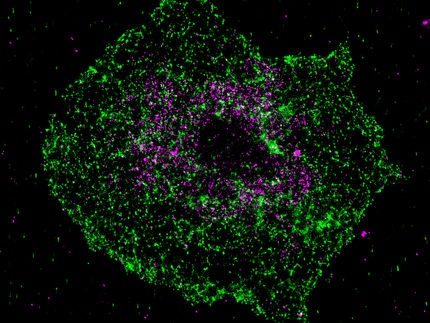Mystery solved: Why people on dialysis have increased risk of heart attack
Advertisement
Patients with advanced kidney disease who are undergoing hemodialysis are known to be highly susceptible to heart attacks and other cardiovascular complications, and now scientists likely know why. New research findings published in the Journal of Leukocyte Biology show that uremic toxins, which are not removed by hemodialysis, increase heart attack risk. The same scientists also have found what can reduce this risk: an oral adsorbent called "AST-120."
"Treatment with AST-120, an oral adsorbent, will not only delay the progression of kidney disease, but may also prevent future heart attack,'" said Masayuki Yoshida, M.D., a researcher involved in the work from the Life Science and Bioethics Research Center at Tokyo Medical and Dental University in Tokyo, Japan.
To make this discovery, scientists used two groups of mice with kidney failure. The first group received AST-120 and the second group did not. When monocytes taken from both sets of mice were subjected to flow cytometry, Mac-1 expression and oxidative stress was reduced in the group with AST-120. For the first time, a study concludes that AST-120 reduces monocyte inflammation in kidney disease, and may reduce cardiovascular diseases including myocardial infarction and stroke in end-stage kidney patients.
"This discovery has the potential to save lives." said John Wherry, Ph.D., Deputy Editor of the Journal of Leukocyte Biology, "While the precise connection between monocytes in the blood, uremic toxins and cardiovascular disease appears quite promising, however, more studies are needed. Nevertheless, the insights from these AST-120 studies in a model of kidney failure should open the doors to further research and therapies."
Original publication
Other news from the department science
Most read news
More news from our other portals
See the theme worlds for related content
Topic World Cell Analysis
Cell analyse advanced method allows us to explore and understand cells in their many facets. From single cell analysis to flow cytometry and imaging technology, cell analysis provides us with valuable insights into the structure, function and interaction of cells. Whether in medicine, biological research or pharmacology, cell analysis is revolutionizing our understanding of disease, development and treatment options.

Topic World Cell Analysis
Cell analyse advanced method allows us to explore and understand cells in their many facets. From single cell analysis to flow cytometry and imaging technology, cell analysis provides us with valuable insights into the structure, function and interaction of cells. Whether in medicine, biological research or pharmacology, cell analysis is revolutionizing our understanding of disease, development and treatment options.

























































